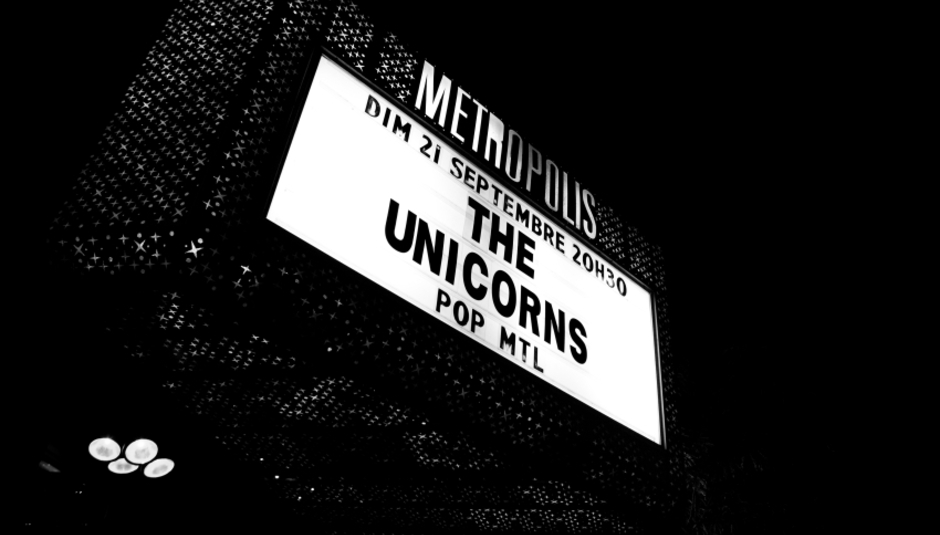There is an elephant in this kitchen. If you didn’t know otherwise - and everyone here knows otherwise - you’d assume the man teaching us how to cook a hangar steak with bulgar farrotto and collard greens is a professional chef. It’s not until the end of his demonstration, which is delivered with a calm authority and a detailed explanation of the best way to prepare each ingredient, that Steve Albini acknowledges that he is indeed Steve Albini, the man who famously produced Nirvana, PJ Harvey, Pixies and The Breeders before less famously producing today’s lunch. He only hints at his day job while preparing a marinade for the beef - he recommends we use a meat rub made by the bassist from Chicago underground rock icons Silkworm. It’s hard to believe he’s cooking in front of people for the first time. It's no surprise that a man renowned for his meticulous attention to detail is a great chef.
‘Dans le labo culinaire avec Steve Albini’, to use the event’s suitably impressive-sounding French title, is a typically inspired Pop Montreal booking. This bilingual, five-day, multi-venue celebration of music, film, crafts and art has always demonstrated an eclectic attitude when it comes to booking acts. How many other festivals this year had Deafheaven and Sheryl Crow on their line-ups? OK, sure, so they should have put them on the same stage, but let's not be too picky.
This is my third Pop Montreal in a row so I know the score - you have to choose your schedule wisely. Pop has close to 400 bands spread out over almost 50 venues, so it’s simply not possible to see more than a tiny fraction of the line-up. The late shows go on till past 2am but due to a lethal combination of jet-lag, ageing, beer and poutine, I wimp out early every night.
The opening evening is a mercifully relaxed one, although Mark Kozelek, performing as part of a four-piece Sun Kil Moon, looks nonplussed. And you can understand why: the Ukrainian Federation is a beautiful venue, the acoustics are excellent, there’s no bleed from other stages, and the crowd is quiet and appreciative. Surely, Kozelek pleads, there are some dicks in this room? He finds none, says that he likes us, and so will let us in on a secret. He cancelled his last show here because he’d 'met a nymphomaniac' in Toronto; she’d kept him awake three days straight and he was too fatigued to travel. Cue slightly nervous laughter.
There’s a dissonance between Kozelek’s beautiful music and his increasingly prolific jerk behaviour. His non-existent feud with The War on Drugs has confirmed his status as the Jeremy Clarkson of indie-rock, a man who’ll say anything to get a headline. This set is heavy with songs from new album Benji and his recent collaboration with Jimmy Lavelle, which means lots of sad songs about family members with stream-of-consciousness lyrics that veer between the sublime and the ridiculous. It’s exceptionally pretty if rather repetitive, and I long for some Red House Painters or something from his stunning début as Sun Kil Moon, Ghosts of the Great Highway.
Thursday evening begins with a show in the magnificent St John the Evangelist church where Australian duo Luluc support the son of Montreal’s favourite son with a set of inoffensive, uninspired acoustic folk. Adam Cohen, whose new album We Go Home came out just as dad Leonard released Popular Problems, is significantly better than I’ve been led to expect. Early in his career he flirted with dance music and sang in French, but these days he seems content to be his father’s son - his songs sound uncannily similar to Cohen Sr’s. And it's brave to write lyrics that appear to acknowledge he’ll always live in his father’s shadow - there are knowing, tongue-in-cheek references to ‘First We Take Manhattan’ and ‘Hallelujah’ on the new record.
I leave church early to watch the first of two fantastic gigs featuring artists on Constellation, the Montreal record label I'll forever be indebted to for opening my ears to a whole new world of experimental music with the release of Godspeed You! Black Emperor's F♯A♯∞ in 1997. Back then Carla Bozulich was still playing punky blues in the Geraldine Fibbers; after going solo she made a record of Willie Nelson covers, and following that she became the frontwoman of Evangelista, who made heroically inaccessible murky and discordant sounds. Tonight she’s playing songs from her latest album, Boy, which sees her edge back in the direction of verse-chorus pop songwriting, although it’s still intense, dark, ominous and plenty loud.
She’s supporting Ought, who've followed Grimes and Mac DeMarco to become 2014's Montreal breakout act. They’re not originally from these parts but they have a compellingly Québécois origin story - they met on the street during the printemps érable - the ‘Maple Spring’ - when students wore red squares and banged pots and pans to (successfully) protest against a hike in university fees; GY!BE’s most recent album features a recording from those same demonstrations. They became part of a local scene based around La Petite-Italie dive bar Brasserie Beaubien - one of this year’s grimier Pop venues - and their spiky, witty début on Constellation earned rave reviews. They sound fantastic tonight - playful, irreverent and inventive music delivered by a super-tight band and a charismatic frontman.
The other great Constellation gig happens on the Mile End rooftop of video game company Ubisoft. Sarah Neufeld of the Arcade Fire, the royal family of the Montreal music scene, makes vast, expansive sounds on solo violin, which tonight have to compete with the elements - it’s an open-air show, unseasonably cold and blustery, and the mixing desk has to be covered in a plastic sheet to protect it from the rain. She’s joined by fellow Montrealer and Arcade Fire contributor Colin Stetson, who as a solo performer producers a dizzying range of sounds from his sax. Tonight he provides depth and texture to Neufeld’s playing - and some necessary reinforcement. Their music is both muted and mutated by the wind; from my spot at the back the musicians cut elegant silhouettes at the edge of the terrace as the sun sets behind Mont Royal.
It’s a beautiful occasion but it’s not quite the most moving show of this year’s Pop. That honour goes to Beyond the Beehive, Ronnie Spector’s extraordinary biographical concert at the Rialto Theatre. Spector is part-narrator, part-singer, as she guides us through her life story, from singing with her teenage pals in her East Harlem apartment to The Ronettes going on tour with The Beatles, to the terrible abuse she suffered at the hands of ex-husband Phil Spector.
The spectre of her murderous ex-husband haunts the show. His police mugshot appears on the big-screen and the audience boos. Even from prison, Ronnie explains, he has tried to control her life. He was able to file a lawsuit which prevents her from performing her Phil-produced hits in theatrical productions. So, after she tells her story of survival against the odds, it’s announced that theatrical part of the show is over and the concert will begin. Ronnie and her band return to the stage to perform the timeless, perfect 'Be My Baby' and it’s the most magical three minutes of the entire festival.
Two survivors of a very different nature play in the basement of the Rialto the following night. Soon after moving to Montreal from Haiti in the late Seventues, Henri-Pierre Noel released two albums of Haitian-influenced disco and funk, which went almost completely unnoticed for over 30 years until they were rediscovered by local DJs and re-released by London’s Wah Wah 45s label. Although he never really went away - he played piano for a few bands here and there - he’s thrilled to be playing his own compositions in front of big crowds again. He plays solo piano in a uniquely bouncy, sprightly manner. You can almost dance to it.
He’s supporting another artist plucked from relative obscurity. Hailu Mergia recorded funky Ethio-jazz in the Seventies and Eighties but was rediscovered by a new generation when the ever-adventurous Awesome Tapes From Africa label put out one of his records last year. After two decades of driving cabs in Washington DC, he’s back on the stage playing the old hits. Ably supported by the band Low Mentality, he plays keyboards like a man reborn, seizing the moment.
Lydia Ainsworth plays with a live snake onstage, although she really has no need for gimmicks. Her new album on Arbutus, the Montreal label that gave us Grimes and Braids, is one of those unclassifiable masterpieces that pulls in influences from everywhere and somehow makes it work. Her record is full of complex, intricate, orchestral electro-pop; her live show is a more pared down affair but still sounds immaculate.
There’s a fantastic show by Saskatoon’s Slow Down, Molasses at Quai des Brumes, where the stage sits a couple of meters from the street - the pavement seems to reverberate whenever a band is playing. A few years ago, the Saskatoon six-piece wouldn’t have bothered passing pedestrians, but they’ve moved on from pastoral folk to something closer to dream pop and shoegaze, delivered with the big-band dynamic of Broken Social Scene. On this evidence, their forthcoming album Burnt Black Cars is going to be excellent.
Maher Shalal Hash Baz defy easy categorisation. The Japanese mini-orchestra's last album featured 177 songs, most of which are only a few seconds long, which is either incredibly pretentious or a blueprint for small bands who need to earn money on Spotify. So it’s kind of a surprise that their Casa del Popolo show features only one song. After 90 minutes, when a prior appointment with a Film Pop screening of the beautiful new Edwyn Collins film presents me with a legitimate excuse for leaving early, the 15 or so people crammed onto the small stage are still playing their hypnotic, shambolic refrain. Half an hour into this seemingly ever-lasting song - I'm pretty sure they're still there now - the entire band decamp outside to make clay pots and figurines. Elsewhere in the venue, a Japanese man sells clay cups made by bandleader Tori Kudo filled with sake brewed by Kudo’s grandfather. It is, in every way, a strange show - and another magnificently odd Pop Montreal booking.
I had no idea that The Unicorns were such a big deal in Montreal, but people here are super-excited about their Sunday night reunion show. A friend helpfully puts it into context: the last time they played Montreal was October 2004, the tail-end of a summer in which their catchy, goofy, effortless-sounding pop seemed to capture the DIY spirit of the local scene; moreover, that show came three weeks after the Arcade Fire released Funeral, the seminal event in Montreal indie-rock history. Tonight they’re playing Métropolis, a venue four times larger than the concert hall they headlined a decade ago, and there’s a sense of genuine excitement in the crowd - it’s the show this crowd has been waiting a long time for. Their charming, funny performance, which includes almost all of their only record Who Will Cut Our Hair When We're Gone?, ends with a song from an EP, The Unicorns: 2014. It’s almost as if they planned the whole thing.
It seems fitting to end Pop Montreal with a show that means so much to local music fans. Although it attracts international bands and an international audience, Pop Montreal was formed out of a love of music and a love of this city. It's run by a non-profit, although they couldn't do this every year without the help of so many lovely volunteers, and it’s this friendliness, enthusiasm and passion that makes it feel like a festival - an event staged by a community for a community - and not just another cynical industry showcase. It's my favourite festival. Roll on 2015.























